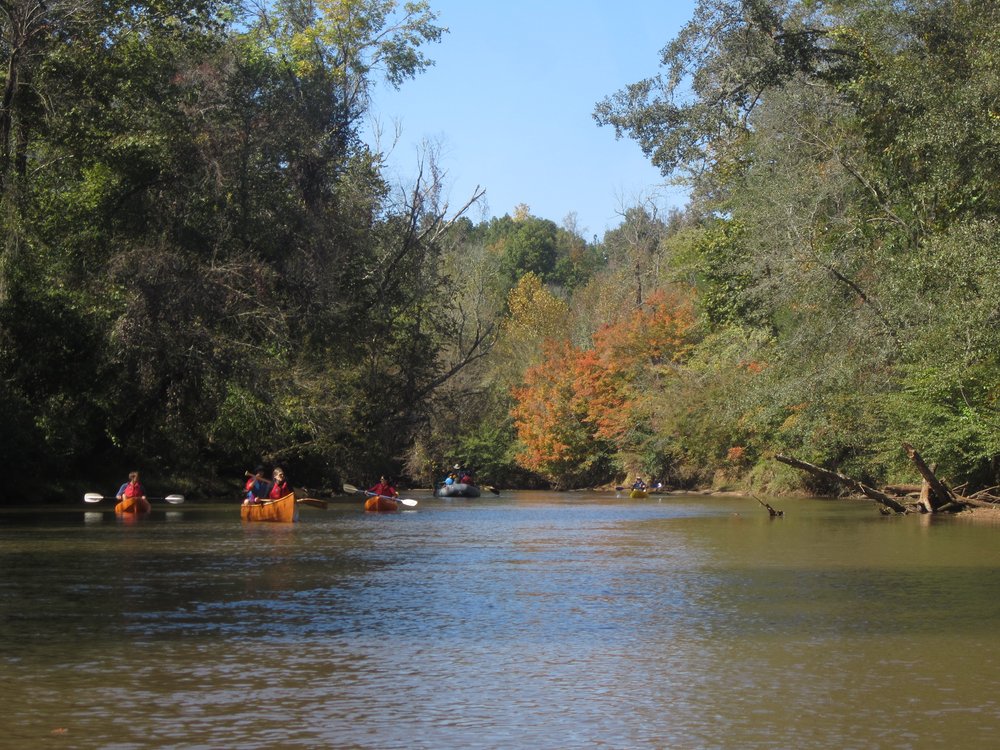Southern River Kinship
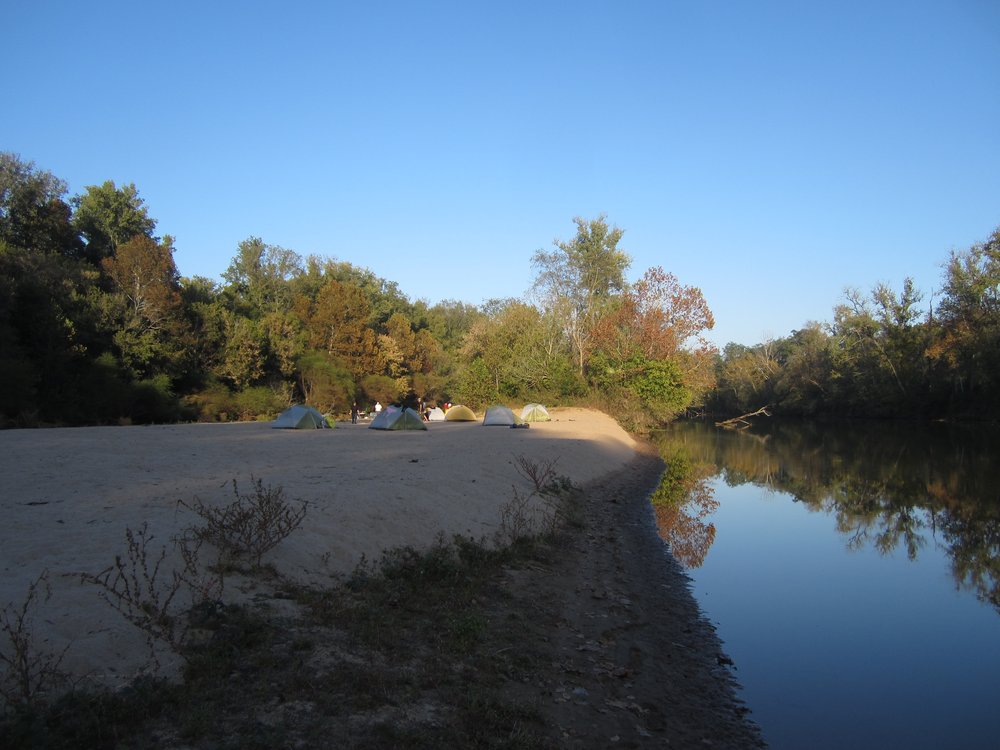
I unzipped my tent and slipped out into the cool of the South Carolina October morning. The sun, if it was trying to shine through, had a challenge in the gray cloud cover. I walked toward the still river hoping to see some sandpipers working the sandy shoreline. Perhaps in the night, while the Barred and Great Horned Owls hooted, some small bird had flown in. But the sandy shoreline wasn’t there anymore. Had I mis-remembered the soft bank of this island?
I walked past a half dozen stilled tents to the kitchen area, where I hoped to find some coffee. Bob, who runs river trips and had orchestrated the details of this float, had the pot set up. All I had to do was turn the knob and light the propane burner. This was cushy camping.
I looked over at the four sit on top kayaks, two regular kayaks, the wooden hand made canoe, and the supply raft. Something was missing.
“Where’s the second raft?” I heard Bob’s voice to my left.
Indeed, it had floated off in the night.

I unzipped my tent and slipped out into the cool of the South Carolina October morning. The sun, if it was trying to shine through, had a challenge in the gray cloud cover. I walked toward the still river hoping to see some sandpipers working the sandy shoreline. Perhaps in the night, while the Barred and Great Horned Owls hooted, some small bird had flown in. But the sandy shoreline wasn’t there anymore. Had I mis-remembered the soft bank of this island?
I walked past a half dozen stilled tents to the kitchen area, where I hoped to find some coffee. Bob, who runs river trips and had orchestrated the details of this float, had the pot set up. All I had to do was turn the knob and light the propane burner. This was cushy camping.
I looked over at the four sit on top kayaks, two regular kayaks, the wooden hand made canoe, and the supply raft. Something was missing.
“Where’s the second raft?” I heard Bob’s voice to my left.
Indeed, it had floated off in the night.
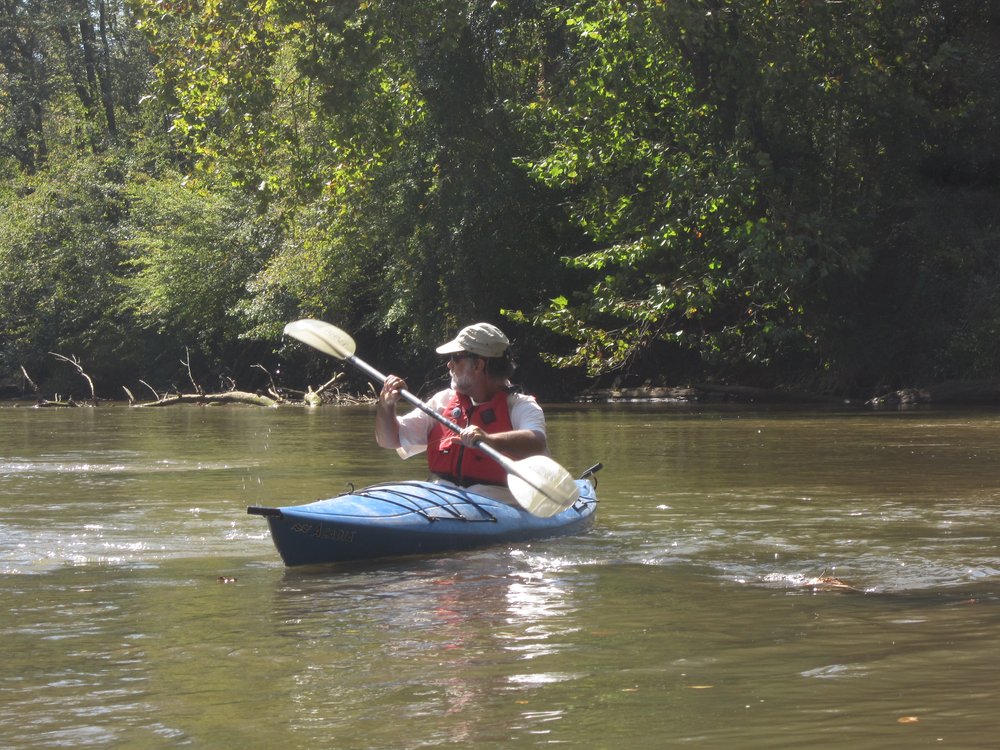
We were now off to experience John’s rivers, first the Pacolet and then the Broad. With us were three Wofford students; Haley, who assists the Environmental studies program; and Kaye Savage and Terry Ferguson, who both teach in the Environmental Studies program. Yes, there were twelve of us on this trip.

On Saturday morning we had gathered in Spartanburg to assemble the most amazing amount of gear. There were enough dry bags to equip an army. But also—we had a stove, a camp table, an enormous cooler, a poop tent, and tents, pads and sleeping bags enough for everyone. We drove south and east through beautiful pine forests to launch on the Pacolet River. I had read about the Pacolet in John’s book, My Paddle to the Sea. In it, he sets his canoe into the Pacolet in his back yard and heads toward the sea. Reading about this journey (I wrote about his and Mike's books earlier) I had been jealous—that he had a river in his back yard and that he could wind through rivers with such lovely names as the Broad and Santee, the Congaree. Though I love my Hudson River, it and its name do not hold the mysteries of a winding river shaded by sweet gum on a red-sand riverbank. Being on the Pacolet my envy returned. It’s an intimate river, narrow and snag-filled, with sycamore trees hugging tight to the water. It was all green and easy paddling, the current in the shallow water scooting us along. Carolina Wrens echoed their song from the river-side bushes, and Mockingbirds, the sound of the south, kept us company with their musical play. I would mosey along, having a conversation with Mike about crows or books that he loves, then loll in the water looking at a Phoebe until Kay and Allison stroked by in the wooden canoe, or the raft with the Wofford students coasted up, their talk and laughter adding to the tonic of the river.
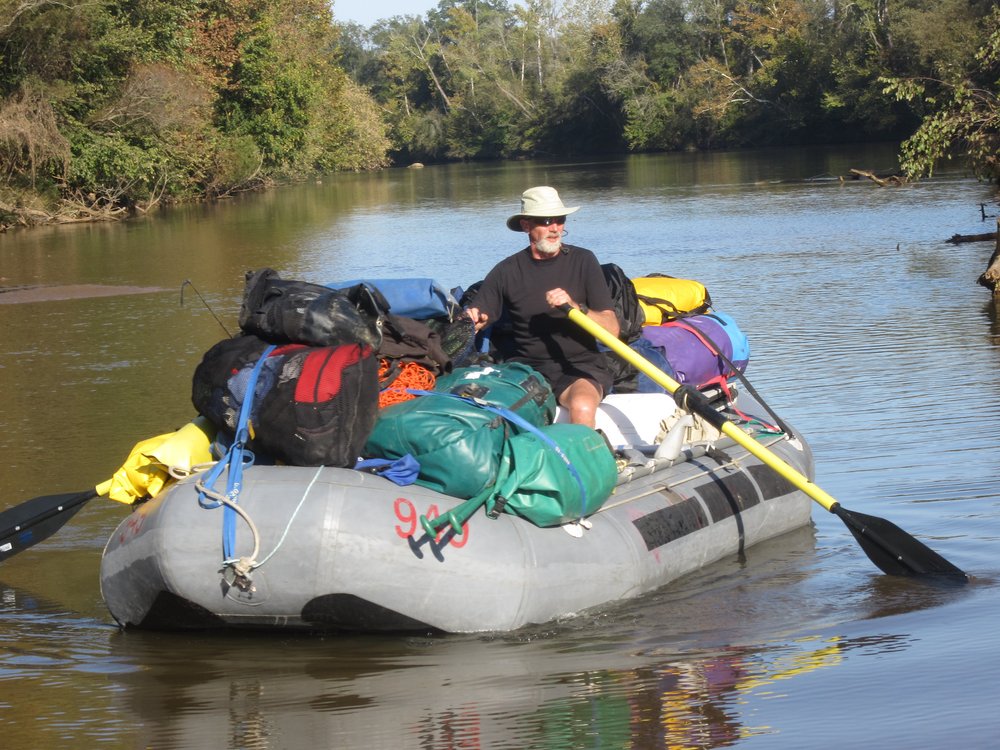
If there is one way to get to think like a river it is to spend time on a river. There, I experienced time differently, the years this river has flowed, and the no-time that it took us to arrive at the Broad River. There, the world opened up, the river less lively then the Pacolet, but more assured. The Wofford students spread onto the rounded sides of the gray raft, legs draped over the sides, and napped as their boat made its way downstream (until, of course, one of them fell out of the boat!). Soon we had pulled up on Goat island. In my reach of the Hudson we also have a Goat Island, with its rocky shoreline and tall trees. This island had a tuft of small trees, but consisted mainly of a wide sandy beach, perfect for our many tents. I pulled my kayak partially out of the water, thinking that this Broad River was not tidal like my Hudson. Nothing would sweep it off in the night.
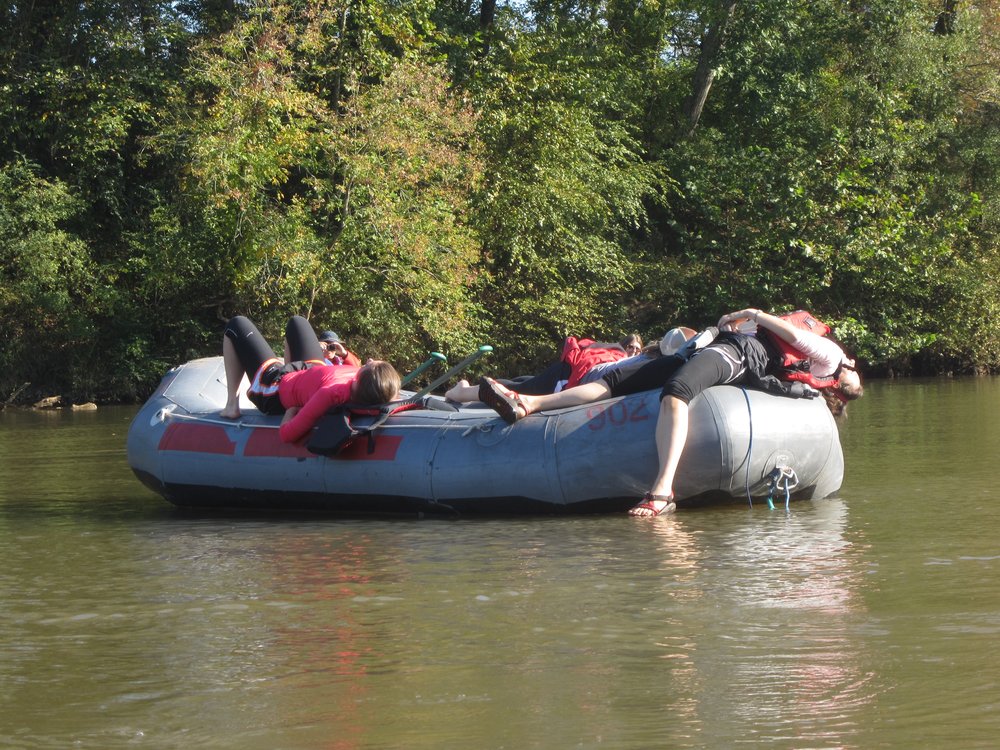
The next morning, the quiet Goat Island transformed as everyone was up and packing tents, stuffing sleeping bags, drinking coffee, marveling that the raft had been swept off in the night (my kayak was just held to shore). A dam upstream must have been released. John, Mike and I left early in our kayaks, and before we left, Allison sang a native song to the spider. The spider would help us find the raft (which we hoped was not hung up at the dam in Lockhart). She sang, then made an offering of coffee to the spiders. And her offering worked: a quarter mile downstream, the fat gray raft had lodged on the bank. John tied it off then we pushed downstream.
